- Home
- About ANT
-
Products
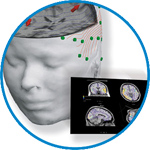
asa
asa is a highly flexible EEG/ERP and MEG analysis package with a variety of source reconstruction, signal analysis and MRI processing features.
.jpg)
eego mylab
The new frontier in multimodal brain research. With up to 16 kHz sampling rate, 256 EEG channels and unique software features, eego mylab gives you an unprecedented in-depth understanding of the human brain.
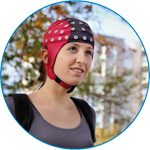
eego sports
eego sports offers complete freedom to collect high-density EEG data, bipolar EMG signals, and a variety of physiological sensor data, wherever and whenever required, with publish quality data in less than 15 minutes!
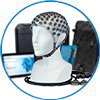
waveguard net
The waveguard net sets a new standard for research applications requiring high-density EEG data acquisition with quick preparation time, high flexibility, and subject comfort.
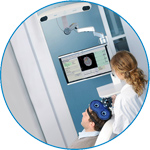
visor2
Our new and upgraded visor2 solutions integrate all the latest technologies for navigated rTMS, dual-coil navigation support, EEG-TMS recordings and pre-surgical evaluation for the highest quality in research and clinical procedures.
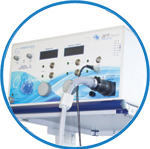
powerMAG ANT
The PowerMAG ANT 100 rTMS stimulator is designed for the specific needs of high-end TMS applications. Powerful high-frequency TMS as well as high precise single pulse and repetitive pulse protocols are combined in one single device.
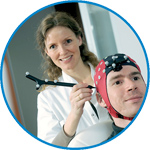
xensor
xensor offers the solution for digitization of 3D electrode positions. xensor takes care of the whole procedure; it records, visualizes and stores positions acquired with a dedicated digitizer.
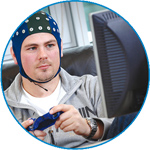
waveguard original
waveguard original is the cap solution for EEG measurements compatible with fMRI, MEG and TMS system. Use of active shielding guarantees performance in even the most demanding environments.
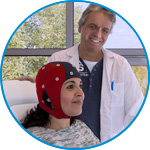
waveguard connect
waveguard connect EEG caps are a perfect match for hospitals and institutes aiming at reliable EEG, maximum uptime and great patient comfort! For optimal signal quality, the electrodes are made of pure, solid tin.
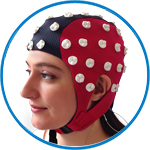
waveguard touch
waveguard touch is a dry electrode EEG cap. The unique Ag/AgCl coated soft polymer electrodes provide stable, research-grade EEG signals while maintaining subject comfort. The combination of these innovative dry electrodes and the industry-leading waveguard cap makes waveguard touch the best solution for dry EEG.
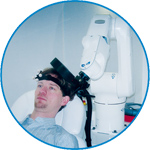
smartmove
smartmove allows planning of a complete TMS session ahead by defining stimulation sites based on anatomical MRI information and functional information like fMRI, PET or EEG/MEG.
Stay - References
- Support
- Events
- News
- Contact Us
You are here
Effects of Amplitude Cueing on Postural Responses and Preparatory Cortical Activity of People With Parkinson Disease.
Effects of Amplitude Cueing on Postural Responses and Preparatory Cortical Activity of People With Parkinson Disease.
Background and Purpose: Persons with Parkinson disease (PD) are unable to modify their postural responses, and show an associated increase in cortical preparatory activity for anticipated postural perturbations.1 In this study we asked whether participants with PD could modify their postural responses and cortical preparatory activity when cued to focus on increasing movement amplitude before a series of predictable postural perturbations.
Methods: Twelve participants with PD performed postural responses to 30 identical backward surface translations. We cued participants to focus on increasing movement amplitude, and examined the effects of cueing by measuring postural responses (center-of-pressure initial rate of change, automatic postural response stability, peak trunk flexion, peak ankle extension) and preparatory cortical activity (electroencephalographic measures of contingent negative variation, alpha and beta event-related desynchronization).
Results: Participants with PD modified their postural responses during the amplitude trials by increasing trunk flexion, slowing center-of-pressure initial rate of change, and decreasing automatic postural response stability. However, no significant differences in contingent negative variation amplitude or alpha or beta event-related desynchronization were observed with versus without amplitude cueing.
Discussion and Conclusions: Persons with PD were able to modify their feet-in-place postural responses with amplitude cueing. These changes were not associated with changes in cortical preparation during amplitude cue trials, suggesting that other regions or measures of brain function were responsible for changes in postural responses. Future studies are needed to determine the effects of long-term amplitude-cueing practice on cortical preparation and postural stability.
Video abstract is available. (See Video, Supplemental Digital Content 1, http://links.lww.com/JNPT/A78, for more insights from the authors.)
For more information, click here>>

 Read more
Read more.jpg)




